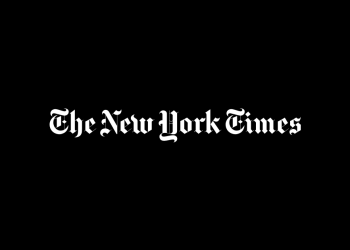Fifteen members of the Palestine Red Crescent Society and Civil Defence were killed.
Not fighters. Not militants. Not people hiding rockets or weapons. They were aid workers. Humanitarians. Medics who ran towards the injured when bombs fell. People who gave their lives trying to save others.
On March 23 in Rafah in southern Gaza, Israeli forces targeted a convoy of ambulances and emergency vehicles. Eight Red Crescent staff, six from the Palestinian Civil Defence and one United Nations staff member were slaughtered. The Israeli military claimed the vehicles were unmarked and suspected of carrying militants.
But that was a lie.
Footage retrieved from the phone of Rifat Radwan, one of the murdered medics, shows flashing red lights, clearly marked vehicles and no weapons in sight. Then, heavy Israeli gunfire. Rifat’s body was later found in a mass grave along with 13 others, some of which bore the signs of execution: bullets in the head or chest and hands bound.
Even in death, they had to prove they were aid workers.
And still, much of the Western media reported Israel’s version first – “Israel says …”, “the IDF states …”, “a military source tells …”. These carefully worded lines carry more weight than the blood-stained uniforms of the Red Crescent. More than the evidence. More than the truth.
This is not new. This is not an isolated mistake.
This is a system.
A system in which Palestinians are presumed guilty. A system in which hospitals must prove they are hospitals, schools must prove they are schools and children must prove they are not human shields. A system in which our existence is treated as a threat – one that must be justified, explained, verified – before anyone will mourn us.
This is what dehumanisation looks like.
I was born and raised in Gaza. I know what a Red Crescent vest means. It means hope when there’s nothing left. It means someone is coming to help – not to fight, not to kill but to save. It means that even in the middle of rubble and death, life still matters to someone.
And I also know what it means to lose that. To see medics killed and then smeared. To hear the world debate their innocence while their colleagues dig through mass graves. To watch the people who tried to save lives reduced to statistics, framed as suspects, then forgotten.
Dehumanisation is not just a rhetorical problem. It is not just media framing or political language. It kills. It erases. It allows the world to look away while entire communities are wiped out.
It tells us: Your life does not matter the same way. Your grief is not real until we verify it. Your death is not tragic until we approve it.
This is why the deaths of these 15 medics and rescuers matter so deeply. Because their story is not just about one atrocity. It is about the machinery of doubt that kicks in every time Palestinians are killed. It is about how we must become our own forensic investigators, our own legal team, our own public relations firm – while mourning the dead.
This burden is not placed on anyone else. When Western journalists are killed, they are honoured. When Israeli civilians die, their names and faces fill screens around the world. When Palestinians die, their families have to prove they weren’t terrorists first.
We are always guilty until proven innocent – and often, not even then.
Study after study has found that Western media quote Israeli sources far more than Palestinian ones and fail to challenge Israeli statements with the same rigour. Palestinian voices are not only marginalised but are also often framed as unreliable or emotional – as if grief discredits truth, as if pain makes us irrational.
This media pattern fuels and reflects political decisions – from arms sales to diplomatic immunity, from silence at international forums to vetoes at the UN. It is all connected. When Palestinians are not seen as fully human, then their killers are not seen as fully responsible.
And the emotional toll is immense. We do not just grieve; we defend our grief. We do not just bury our dead; we fight to have their deaths recognised. We live with a psychological pressure no community should bear – the pressure to prove we are not what the world has already decided we are.
These 15 medics and first responders were heroes. They ran towards danger. They served their people. They believed in the sanctity of life, even in a place where life is constantly under siege. Their memory should be sacred.
Instead, their story became another battleground.
The world needs to stop making us prove we are human. Stop assuming that we lie and that our killers tell the truth. Stop accepting a narrative that requires Palestinians to be saints in order to be mourned.
These medics deserved to be believed. They deserved to be protected. And they deserve justice.
But most of all, they deserved – as we all do – to be seen as human.
The views expressed in this article are the author’s own and do not necessarily reflect Al Jazeera’s editorial stance.
#Israel #kills #lies #Western #media #IsraelPalestine #conflict























